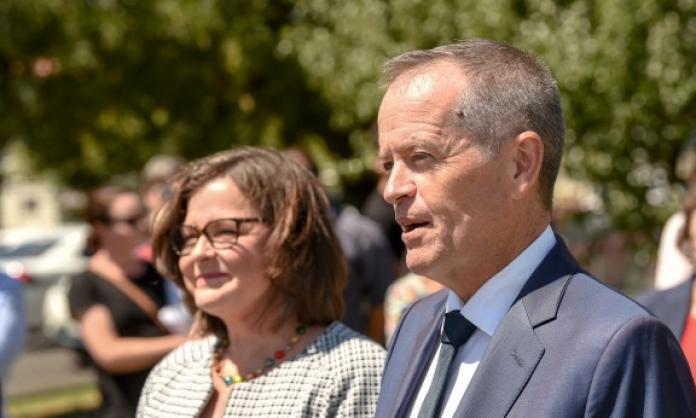The system is broken. Soaring bonuses at the top, rampant wage theft below. Corporate rorts left unchecked in the executive suites, the full weight of the police, courts and governments thrown at unions taking action. The fat cats rolling in money, the mass of workers left to rot.
Far from the land of the fair go, Australia is a rich man’s country.
The laws governing our working lives must change. The ACTU’s Change the Rules campaign has identified some areas needing urgent attention. These include ending the use of sham agreements, preventing employers from terminating enterprise agreements and boosting the legal minimums in industry awards, which are increasingly threadbare.
The ACTU says workers should have the right to convert to permanent status after six months. Government procurement should guarantee workers’ conditions, not shred them. Labour hire workers should get at least the pay and conditions of directly employed staff. Immigration should favour permanent migration rather than exploitative temporary working visas. Penalty rates should be restored.
Action is needed in these areas. But we need a clear set of demands. The Change the Rules campaign aims to elect a Labor government – that much is obvious. What should we demand from the ALP to justify unions throwing their weight behind an electoral campaign?
A log of claims
The ACTU wants a boost to the legal minimums in awards. But its concrete demands are vague or paltry. For example, it calls for a living wage of 60 percent of median earnings. That would leave full time workers struggling to get by on only $19.50 an hour, a tiny increase on the current $18.29.
We should demand more – at least $22 an hour minimum wage. And adult wages at age 16 or 18, not 21.
A standard 35-hour week is well overdue: we haven’t had a cut in working hours for nearly four decades despite productivity going through the roof.
Minimum three-hour engagement of casual staff and a casual loading of 30 percent, up from 25 percent, and stiffer penalties for employers breaching employment standards or occupational health and safety provisions.
These are just a start, but every worker could rally around them. And demanding them from the ALP would serve as a good test of whether Labor has any intention of improving workers’ lives, or whether its only interest is to get union members campaigning in marginal seats.
There’s also the question of who would police these gains. Eighty-five percent of workers are not in unions, so an immediate demand on Labor could be to double or triple the number of inspectors to conduct snap investigations of wage theft.
To make minimum standards stick, we need stronger unions. So, for a start, Labor should scrap restrictions on the right of unions to enter work sites.
Union representatives need stronger protection from employer victimisation and more paid time off to attend to union training. They also need access to the company books and investment plans: without such knowledge, our side is fighting with one arm tied behind our backs.
Labor must commit to scrapping the Australian Building and Construction Commission, which harasses unionists in the construction industry, and the Registered Organisations Commission, which ties up unions in bureaucratic knots.
One of the most important things that an incoming Labor government must address is onerous restrictions on the right to strike. The ACTU says that Australian laws should be brought into line with International Labour Organization conventions, but let’s put some meat on the bones.
Our log of claims on Labor should include:
Lifting the restrictions on when workers can take industrial action. The bosses can take action against workers any time they like, so we shouldn’t have our hands tied either.
No limit on solidarity strikes (“secondary boycotts”) or industry-wide strikes in pursuit of a common agreement.
No requirement that the boss be given three days’ notice of industrial action or information on the actions that will be taken (a ban, a strike etc.).
No requirement to conduct secret ballots before taking industrial action.
No limit on what matters can be the subject of collective action or a collective agreement.
No right for employers to go over the head of union bargaining teams to ballot the workforce on their proposed terms of agreement.
Again, these are just a start. But without nailing these things down, Labor will evade responsibility for changing the rules.
Labor’s rules
Putting up a definite set of demands is important because many rules that hem us in are Labor’s doing.
You would not know this from ACTU publicity and speeches, which never mention Labor’s role in getting us to where we are today. Far from it, ACTU secretary Sally McManus says that Labor’s Fair Work laws restored workers’ rights when they replaced the Howard government’s WorkChoices. The problem, she argues, is that the global financial crisis and the subsequent bosses’ offensive have rendered them out of date.
That’s simply not true. The Fair Work laws took effect after the financial crisis. And they never “rebuilt workplace rights”. In fact, some of the provisions were condemned by the International Labour Organization because they breached its standards.
Every major attack carried out by the employers since, every adverse ruling by the Fair Work Commission, has been within the framework of Labor’s Fair Work laws.
Nothing that the ALP has said in the past couple of years should give us any confidence that a Labor government will carry out the changes we need unless it is brought under immense pressure. Labor’s only definite commitment so far is to roll back the cuts to penalty rates.
Labor’s complicity in creating the situation we face today and the absence of any commitment by the ALP so far to agree to the ACTU’s limited demands are the big silence in the Change the Rules campaign, which risks becoming simply a blank cheque for the Labor Party: unstinting support by the unions in return for empty statements by the ALP politicians.
We’ve been through this before with the Your Rights at Work campaign against WorkChoices, when the ACTU simply dropped the ball and put Labor under no pressure to come up with something better.
The dead end of arbitration
If letting Labor off the hook is a problem we face with Change the Rules, another is the shifting focus signalled by McManus in a speech to the Per Capita think tank in Melbourne on 27 April.
In this speech, the ACTU secretary identified the Fair Work Commission, the very body responsible for trashing our rights in recent years, as the institution that could save us.
McManus’ speech was a whitewash for the Fair Work Commission and its predecessors. “We used to have the best system of conciliation and arbitration in the world”, she argued. McManus occasionally refers to trade unions campaigning for shorter working hours, paid annual leave, paid sick leave and so forth, but 99 percent of her story attributes the gains made by Australian workers in the past to the benevolent role played by industrial tribunals.
This is a complete distortion of the history of arbitration. Not for nothing did militants call arbitration “labour’s leg irons”: it was a mechanism used repeatedly by the bosses, by government ministers and not a few trade union leaders to snuff out working class militancy.
Every good union delegate did their best to avoid going to arbitration, knowing it was likely to be the death of their campaign to win a dispute. Every good union delegate knew that the fight on the job delivered the goods. More often than not, a well-organised strike would be enough to squeeze concessions from the boss.
But even if the dispute ended in the commission, the outcome in the courtroom was determined by the campaign waged beforehand, and the threat of a return to battle if the tribunal did not deliver. Every half-decent union organiser knew that “you’ll never win in the court what you can’t win on the grass”.
But you’ll search in vain for these basic facts of union life in McManus’ recent speech: in her 4,000 word address, the word “strike” does not appear once. Instead, McManus argues for the reinstitution of the worst elements of arbitration, which earned the tribunals the enmity of generations of union activists: the right to compel unions to end their action and for the commission to arbitrate on their case.
The problem we face today is not that the commission lacks teeth but that it has been aiding and abetting the bosses as they have eliminated work rights built up over decades. And Labor-appointed commissioners have been some of the worst: Shorten’s appointee Iain Ross, as president of the commission, slashed penalty rates for hospitality and fast food workers.
Rebuilding the unions is the only guarantee of our rights.
The Change the Rules campaign could become the mechanism to mobilise hundreds of thousands of workers to fight for a real breakthrough for workers’ rights. Or it could turn the unions into mere servants of the ALP.











